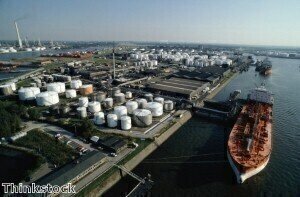Analytical instrumentation
What Instruments Are Used to Test Petrol?
Apr 20 2021
Petrol standards are strictly enforced in most countries, with regulations set out by organisations such as the American Society for Testing and Materials (ASTM), International Organisation for Standardisation (ISO) and the Institute of Petroleum (IP). As well as extending engine life and maximising performance, high quality fuel minimises emissions and helps reduce the environmental footprints of users.
There are two key areas analysed when carrying out petrol testing – physical characteristics and chemical properties. Laboratories use a variety of specialised instruments to test for each, with some of the most common introduced below:
Flash point testers
Used to determine the temperature point at which a sample vaporises to an ignition-ready composition state, flash point testers are specialised instruments used by most leading laboratories.
Vapour pressure analysers
Also known as VPAs, vapour pressure analysers use the Knudsen effusion method to measure the vapor pressures of oils, liquids and solids.
Distillation equipment
Instruments such as Automatic Distillation Apparatus LADA-A10 benchtop units are used to calculate the distillation range of petroleum products.
Combustion analysers
Critical to both safety and engine performance, combustion analysers such as the FIA-100/FCA inject small samples of fuel into a highly pressurized and heated volume combustion chamber. This forced the fuel to auto-ignite and allows researchers to map combustion pressure data.
Octane number analysers
Research Octane Number (RON) is used to indicate how much pressure a fuel type can withstand before combusting. Handheld instruments such as the Portable Octane Analyser from Koehler allow quality control personnel to measure RON in minutes.
Oxidation stability analysers
Maintaining optimal oxidation levels is critical to fuel quality. An increase in oxidation can not only increase oil viscosity and compromise flow but can encourage the accumulation of sludge in the engine.
Trace metals analysers
While most petroleum products contain metals, excessive amounts can damage engines and compromise performance. To monitor trace metal content analysers use purpose-built instruments designed to detect compounds such as arsenic, beryllium, lead, mercury, nickel, selenium and vanadium.
Viscometers
Viscosity is an important characteristic as it is used to grade petrol and determine price. Viscometers are used to measure the viscosity of petrol and determine its flow characteristics.
As well as petrol, it’s also important to monitor the characteristics of lubricating oils. The techniques and instruments used to do this are spotlighted in ‘ASTM D7751: Determination of Additive Elements in Lubricating Oils by EDXRF Analysis.’
Digital Edition
PIN 26.1 Feb/Mar 2025
March 2025
Analytical Instrumentation - Elemental Analysis for Quality and Process Control at Refineries, for Lubricants and Wear Metals in Engine Oils - Synthetic Lubricants: New Developments - Scaling...
View all digital editions
Events
Mar 18 2025 Beijing, China
Mar 19 2025 Manila, Philippines
Mar 20 2025 Brussels, Belgium
Mar 20 2025 Guangzhou, China
ACS National Meeting & Expo, Spring 2025
Mar 23 2025 San Diego, CA, USA








.jpg)





.jpg)




